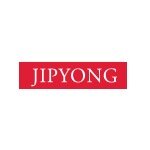Best Employer Lawyers in Jung-gu
Share your needs with us, get contacted by law firms.
Free. Takes 2 min.
List of the best lawyers in Jung-gu, South Korea
About Employer Law in Jung-gu, South Korea
Employer law in Jung-gu, South Korea, pertains to regulations and legal considerations surrounding the employer-employee relationship. This includes employment contracts, working conditions, employee rights, and dispute resolution. In Jung-gu, which is a central district of Seoul, there are both national and local laws that impact employers, reflecting broader South Korean labor laws as well as specific regional practices and regulations. Understanding these laws is crucial for employers to ensure compliance and foster a positive working environment.
Why You May Need a Lawyer
There are several situations where consulting a lawyer specializing in employment law could be beneficial. Common scenarios include:
- Drafting or reviewing employment contracts to ensure compliance and protect interests.
- Addressing workplace disputes, such as wrongful termination or discrimination claims.
- Navigating complex regulatory requirements related to health and safety standards.
- Handling issues related to employee benefits and compensation, including bonuses and overtime pay.
- Ensuring compliance with labor laws when downsizing or restructuring.
Consulting a legal professional can provide clarity, mitigate risks, and guide employers through potential litigation.
Local Laws Overview
Some key aspects of local laws relevant to employers in Jung-gu include:
- Employment Contracts: Contracts must clearly state terms of employment, job roles, and conditions. Revisions in employment terms must be formally documented.
- Working Hours: South Korea has strict regulations on working hours, typically 40 hours per week with a maximum of 12 hours overtime.
- Minimum Wage: Employers must comply with the national minimum wage standards, which are subject to annual review.
- Employee Rights: Protection against discrimination and wrongful dismissal is enforced, requiring fair treatment and justified termination processes.
- Health and Safety: Ensuring workplace safety is a critical legal requirement, demanding compliance with safety standards and regular audits.
Frequently Asked Questions
What are the essential components of an employment contract in Jung-gu?
An employment contract should include job description, salary, working hours, holiday entitlements, and conditions for termination.
How can I resolve an employment dispute?
Disputes can be resolved through negotiation, mediation, or legal action. Consulting a lawyer can assist in selecting the appropriate method.
What are the legal requirements for terminating an employee?
Termination must be justified with valid reasons. Notice periods and compensation may be required based on contract terms and legal guidelines.
Is there a standard probation period for new employees?
Probation periods are typically three to six months, but it can vary. Details should be specified in the employment contract.
Are there specific laws against workplace discrimination?
Yes, South Korea enforces laws against discrimination based on gender, age, disability, and other protected characteristics.
What should I do if an employee files a complaint about workplace harassment?
Investigate promptly and take appropriate action to resolve the complaint while ensuring compliance with anti-harassment laws.
Can I modify an employee's job role or responsibilities?
Modifications require mutual consent and should be documented formally to avoid disputes.
Are there any restrictions on the use of fixed-term contracts?
Fixed-term contracts are allowed, but continuous renewal without legitimate business need can be challenged as permanent employment.
What should I include in a workplace safety policy?
Policies should cover emergency procedures, safety protocols, equipment handling instructions, and employee responsibilities.
How is overtime compensation calculated?
Overtime is typically paid at a rate of 1.5 times the regular hourly rate, with specifics determined by contract and collective agreements.
Additional Resources
For further assistance, consider reaching out to the following resources:
- Korean Bar Association for qualified legal assistance.
- Ministry of Employment and Labor for guidance on employment standards.
- Jung-gu District Office for local regulatory information and business support services.
Next Steps
If you require legal assistance, start by identifying the nature of your legal need, such as contract issues, dispute resolution, or compliance inquiries. Then, consult with a professional lawyer specializing in employment law. Gather all relevant documentation, including contracts, communication records, and any evidence related to the situation, to provide your lawyer with comprehensive information. This preparation will significantly enhance the efficiency and effectiveness of your legal consultation.
Lawzana helps you find the best lawyers and law firms in Jung-gu through a curated and pre-screened list of qualified legal professionals. Our platform offers rankings and detailed profiles of attorneys and law firms, allowing you to compare based on practice areas, including Employer, experience, and client feedback.
Each profile includes a description of the firm's areas of practice, client reviews, team members and partners, year of establishment, spoken languages, office locations, contact information, social media presence, and any published articles or resources. Most firms on our platform speak English and are experienced in both local and international legal matters.
Get a quote from top-rated law firms in Jung-gu, South Korea — quickly, securely, and without unnecessary hassle.
Disclaimer:
The information provided on this page is for general informational purposes only and does not constitute legal advice. While we strive to ensure the accuracy and relevance of the content, legal information may change over time, and interpretations of the law can vary. You should always consult with a qualified legal professional for advice specific to your situation.
We disclaim all liability for actions taken or not taken based on the content of this page. If you believe any information is incorrect or outdated, please contact us, and we will review and update it where appropriate.








